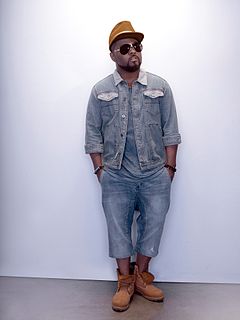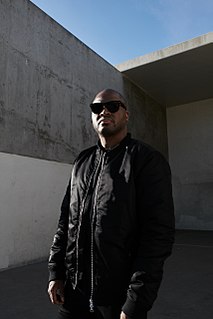A Quote by Paul F. Tompkins
Just because I have a good vocabulary, I don't think of myself as anachronistic - just because I try not to use the word 'like' every other word.
Related Quotes
I was like, "This is a new thing that the gay people have decided? That's the gayest thing I've ever heard in my life." You can't do that. You can't decide that a word is forbidden now collectively amongst your group of human beings, that the word is a slanderous evil nasty word about homosexuals. It's not, the word doesn't mean that. And sometimes it's a good word to use in comedy. That's what your friend has to realize when he's at a bar just yelling out the word.
Behind every word a whole world is hidden that must be imagined. Actually, every word has a great burden of memories, not only just of one person but of all mankind. Take a word such as bread, or war; take a word such as chair, or bed or Heaven. Behind every word is a whole world. I'm afraid that most people use words as something to throw away without sensing the burden that lies in a word.
My favorite six letter word is always because it promises so much. My favorite five letter word is never because it insists on contradicting the promise. My favorite four letter word is once because it says it happened then. My favorite three letter word is yes because I’m just now learning to say it to my heart. My favorite two letter word is if because it makes all things possible like this: If not always If not never Then once. Yes.
The word "metaphor" means carrying something from one place to another . . . and it is when you describe something by using a word for something that it isn't. This means that the word "metaphor" is a metaphor. I think it should be called a lie because a pig is not like a day and people people do not have skeletons in their cupboards. And when I try and make a picture of the phrase in my head it just confuses me because imagining and apple in someone's eye doesn't have anything to do with liking someone a lot and it makes you forget what the person was talking about.
I believe that should is one of the most damaging words in our language. Every time we use it, we are, in effect, saying that we are wrong, or we were wrong, or we're going to be wrong. I would like to take the word should out of our vocabulary forever and replace it with the word could. This word gives us a choice, and we're never wrong.
When I came back to the United States, I decided that if you could use propaganda for war, you could certainly use it for peace. And "propaganda" got to be a bad word because of the Germans using it, so what I did was to try and find some other words so we found the word "councelor of public relations".
Love is just a word that we've chosen to use to describe something that we can't fully explain. I mean, it's like, as a culture, we've just all agreed on using the term, but I think people get so caught up in the word that they don't allow themselves the privilege to live out what it actually might be.
Never use a metaphor, simile, or other figure of speech which you are used to seeing in print. Never use a long word where a short one will do. If it is possible to cut a word out always cut it out. Never use the passive voice where you can use the active. Never use a foreign phrase a scientific word or a jargon word if you can think of an everyday English equivalent. Break any of these rules sooner than say anything outright barbarous.


































